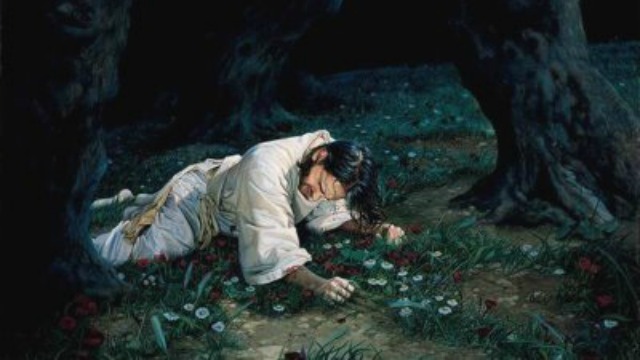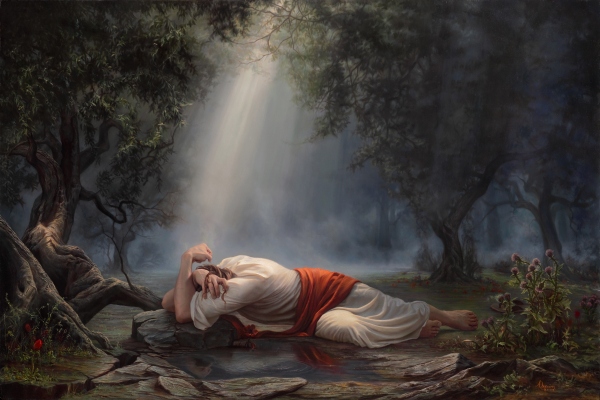Question
Dear Gramps,
We are told that the Savior suffered beyond all human endurance and pain when he performed the Atonement for all mankind. How is it that he wasn’t mentally and emotionally traumatized by the experience?
Rob
Answer
Rob,
As we ponder our Lord’s atonement, i.e., the mental, the emotional, and the physical trauma he experienced for all of us, I am deeply humbled by his love for us and His Father.
In light of your question my heart ponders two necessary elements which help us understand why he was able to overcome without being traumatized by the events leading up to his crucifixion.
The first, he was the only begotten of the Father – He was God. The second, he completely understood the principle “to act for themselves and not to be acted upon.”
Not only do our modern day apostles draw attention to Christ being God, but the Lord Himself declared, “Which suffering caused myself, even God, the greatest of all…to suffer both body and spirit” (emphasis added).
To further illustrate this doctrine Elder Talmage in his sermon “Jesus the Christ” he wrote,
“Christ’s agony in the garden is unfathomable by the finite mind, both as to intensity and cause. … It was not physical pain, nor mental anguish alone, that caused Him to suffer such torture as to produce an extrusion of blood from every pore; but a spiritual agony of soul such as only God was capable of experiencing. No other man, however great his powers of physical or mental endurance, could have suffered so; for his human organism would have succumbed, and syncope would have produced unconsciousness and welcome oblivion” (Jesus the Christ ch 33).
In scripture, due to the fall of Adam and Eve we are taught (bringing us to the other point) that, “[we] have become free forever, knowing good from evil; to act for themselves and not to be acted upon.” (2 Nephi 2:26)
Elder David A. Bednar, shares a quote from Viktor Frankle, a World War II concentration camp survivor, to deepen our understanding that man are free to act for themselves and not to be acted upon. He shares, “The experience of camp life show that man does have a choice of action…Man can preserve a vestige of spiritual freedom, of independence of mind, even in such terrible conditions of psychic and physical stress.”
Viktor Frankl further shares,
“Fundamentally, therefore, any man can, even under such circumstances, decide what shall become of him — mentally and spiritually…. The way in which a man accepts his fate and all the suffering it entails, the way in which he takes up his cross, give him ample opportunity — even in the most difficult circumstances — to add a deeper meaning to life.” (Man’s Search for Meaning, pg. 65-67).
As I conclude my response, I would assume the reason why our Savior was not emotionally or spiritually traumatized is because he is God, and he inevitably chose to act for himself and not to be acted upon. I am reminded of the words of William Earnest Henley from his poem “Invictus” who wrote, “Under the bludgeonings of chance. My head is bloody, but unbowed.” I have always loved the words, “but unbowed”! Our Lord’s head was bloody…but surely it was unbowed!
Gramps







